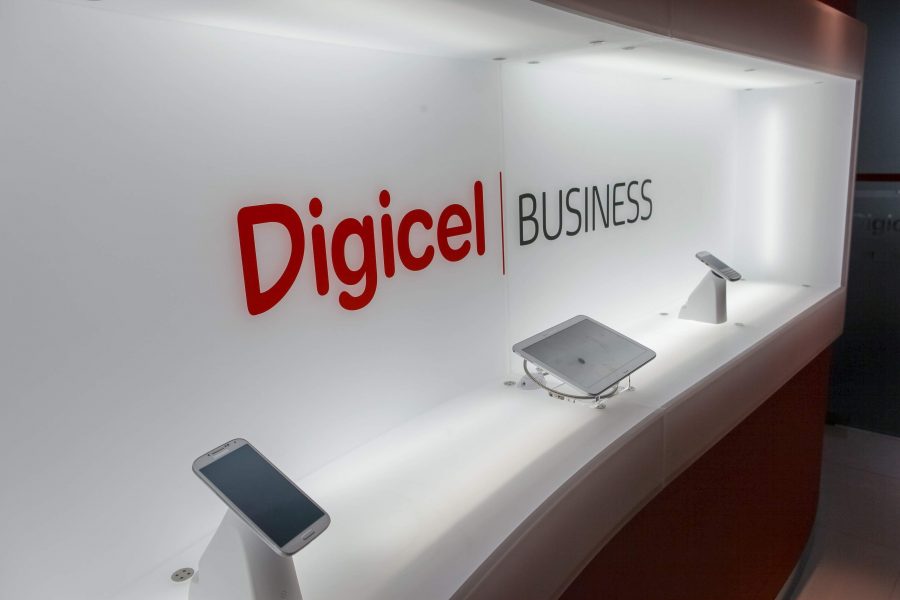What does that mean?
Nigel Taylor
Over the last 14 months there has been a lot of talk about the benefits of 100 percent true fibre network for residents of the island. But what about businesses? The newest technology for business-to-business services and solutions is “Fibre to the Business”, and here’s a breakdown:
There are two main types of internet technologies used by businesses on the island: fibre and copper. Fibre optic is, by simple scientific fact, the best technology currently available for the transferring of data. Fibreoptic cables use pulses of light to send data between two points while traditional copper cable uses sound pulses over expensive copper metal.
A 100 percent fibre internet service goes point-to-point without interruption. This means taking the fibre cable all the way into the business, rather than switch to another technology, such as copper, to cover the last portion of the journey. Going from fibre to copper cabling or another network type introduces degradation and a possible point of failure.
Mathieu Dion, Head of Business Solutions at Digicel Bermuda explains, “Fibre to the business is the future of business telecoms and services, for a number of reasons. In today’s business environment organisations can’t put up with even the lowest level of latency for data transfer or internet speed. Likewise, security is paramount.”
Thebig benefit for companies is that fibre all the way into the business provides a point-to-point, dedicated network connection that combines low latency and high security. In simple terms there is no sharing of a fibre line with outside parties, which copper, a hybrid (of copper and fibre) or WiFi solutions allow. Fibre is also not susceptible to magnetic, electrical or other types of interference that can impact both copper and wireless technologies.
“The term ‘future proofed’ may sound like jargon but fibre is built for future needs and completely scalable as the need for greater bandwidth grows. This also makes it cost effective in the long run for future upgrades. Given the pace of technology advances, even at the SMEs and home office level, this is crucial to continued growth and reduction in costs”, added Mr Dion.
“In today’s fast-paced business world it’s essential to be able to run all business-critical applications reliably online. Effective communication with colleagues, customers and suppliers is key to success. Businesses with fibre connections will be able to expand their computing power and capabilities on demand at a moment’s notice.”
Fibre is less susceptible than copper to degradation, temperature and moisture interference, which is a common problem in Bermuda due to its subtropical climate. Fibre connectivity provides businesses with consistently fast speeds when they need it, i.e. all the time.
In the United Kingdom, companies are making the switch and when British Telecom surveyed 900 of their customers, 75 percent said fibre internet helped them achieve their business goals and deliver a better customer experience when compared to the standard business internet.
In the wider context of what a fibre infrastructure means for Bermuda, during an interview with Bloomberg TV earlier this year, Premier David Burt mentioned the fibre-to-the-home network as he talked about the island’s readiness to host Blockchain and FinTech companies as well as the development of Bermuda as a digital hub.
In terms of islands of similar size and development plans, this matches what has been happening in Jersey, in the Channel Islands, as it aims to the become the first jurisdiction in the world to reach 100 percent full-fibre connectivity this year. There are 36,000+ properties connected to 100 percent fibre in Jersey, while fibre runs past 36,365properties (business and home) in Bermuda so the potential is there. Additionally, Bermuda also has an advanced LTE (Long-Term Evolution) mobile network, meaning the island is not far behind as one of the most seamlessly connected places in the world.
FinTech, Blockchain and cryptocurrencies have been hot topics recently as the government plans to attract these industries to the island. Commenting on the government’s plans, Paul Stafford, CEO of Digicel Bermuda, said, “As the island looks to attract FinTech and blockchain-based companies, Digicel is best placed to offer a world-class fibre network. Because ours is the only 100 percent end-to-end fibre network, we are in a unique position to provide a service with not just high speeds, but equally, reliability, scalability, resilience and low-latency.”
From an employment perspective, this is a positive move as the island expands its employment base beyond the reinsurance industry. According to Jersey Telecom, 100+ jobs were created within the digital sector off the back of the fibre roll out. This can only be good news as the government peruses its digital agenda. In addition to job creation, locally it has resulted in upskilling as BTC service technicians with decades of experience of building, installing and maintaining a copper network were retrained on a newer technology, ensuring job security.
As Bermuda continues to lead the way in the reinsurance industry, seeks to attract emerging industries, and grows opportunities for local business owners, the fibre technology is there to provide the unseen, unsung backbone to ongoing success.
Digicel’s Fibre to the Business is launching in early October.
This article was originally published in the September 2018 edition of the RG Business Magazine.

